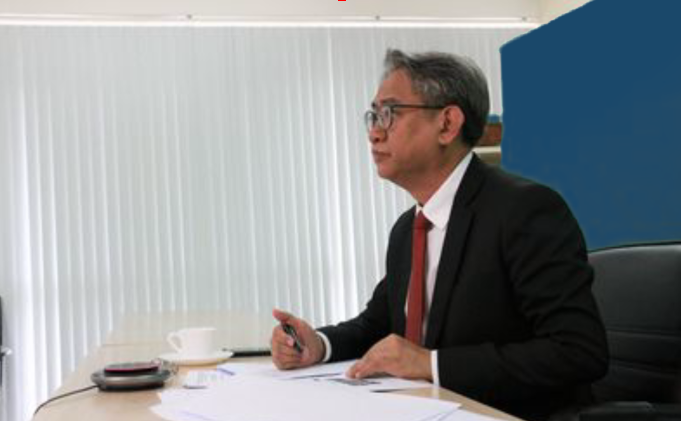In continued promotion of agricultural development and food security, Mekong Institute (MI) Executive Director Mr. Suriyan Vichitlekarn discussed the role of digitalization and economic corridors in building robust food and agricultural value chains at the Dialogue for Innovation and Sustainable Growth webinar on “Upgrading Food Value Chain in Mekong and ASEAN.”
“To build a competitive, inclusive, resilient, and sustainable food and agricultural sector, we must work together in upskilling smallholders farmers’ adoption of smart technologies,” he said, adding that efforts must be made to synergize capacity building and infrastructure investments.
In the Greater Mekong Subregion, agriculture serves as the backbone of members countries’ economies. With over 60 percent of the subregion’s population engaged in small-scale agriculture, it directly supports the livelihood of nearly 200 million people.
Mr. Suriyan, who was one of two keynote speakers of the event, also highlighted that regional mechanisms can contribute to a more open agricultural trade.
“By investing in our economic corridors, we can help reduce trade barriers, lower transaction costs, foster efficiency along the supply and value chains to stabilize food prices, generate employment, and reduce poverty,” he explained.
Representatives from Japanese companies such as Sojitz Corporation, SIAM KUBOTA Corporation Co., Ltd., Yamamoto Green, and Japan Telecommunications Engineering and Consulting Services also participated and presented advanced technologies that can be applied in countries across the Mekong and ASEAN regions to help boost agricultural commercial production and strengthen food systems.
“Discussions such as this are important in our shared efforts in meeting our ASEAN Economic Community targets,” said Dr. Pham Quang Minh, Assistant Director of the Food, Agriculture, and Forestry Division from the ASEAN Secretariat, before underscoring the need for deeper collaboration in making agricultural development accessible to a wider range of stakeholders in the food value chain for impactful change.
Mr. Suriyan supported the statement by emphasizing the importance of linking public-private partners from Mekong countries and Japan to foster technology matching services in bridging the digital divide. Specifically, he presented priority agricultural trends of Mekong countries as part of MI’s efforts to bridge areas of collaboration that can deepen Japan and Mekong connectivity.
The webinar on February 9, 2021 was the fourth of a series of dialogues facilitated by the AEM-METI Economic and Industrial Cooperation Committee Secretariat.








